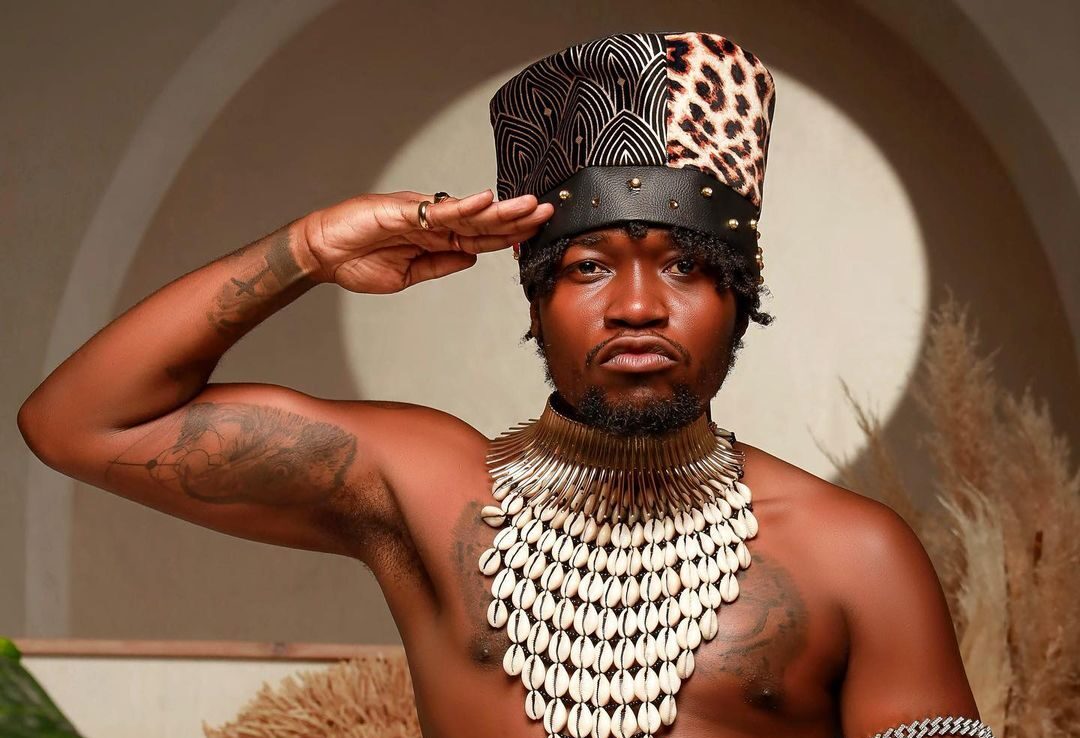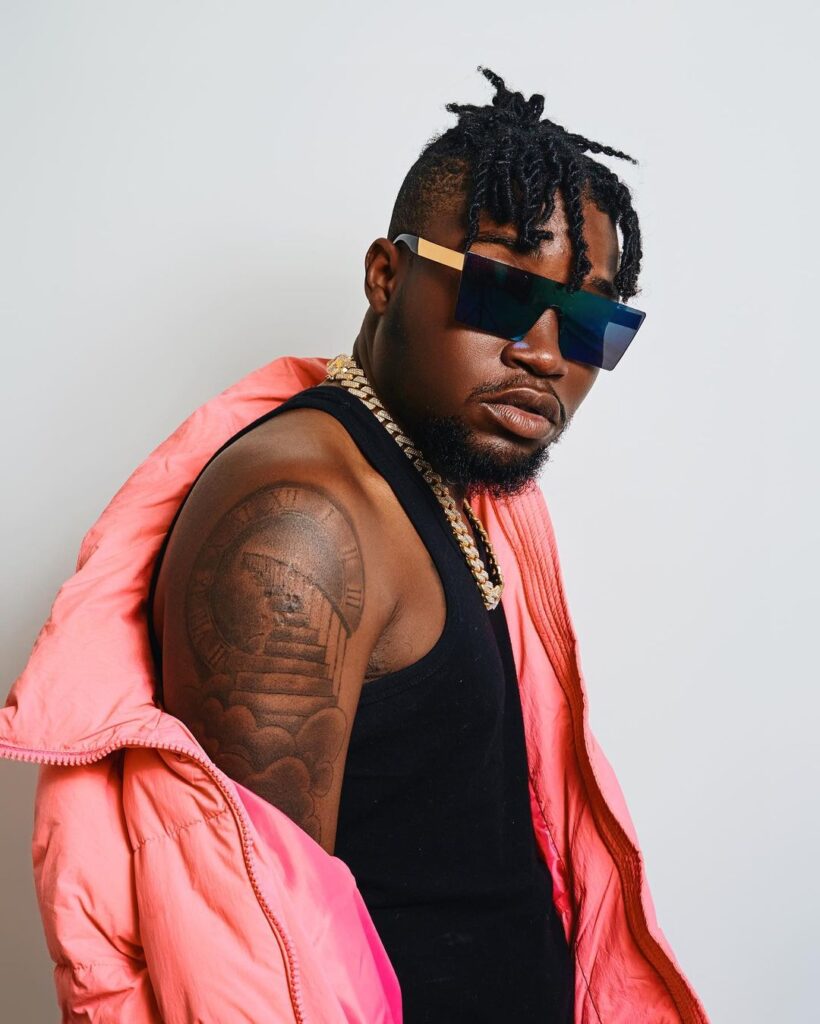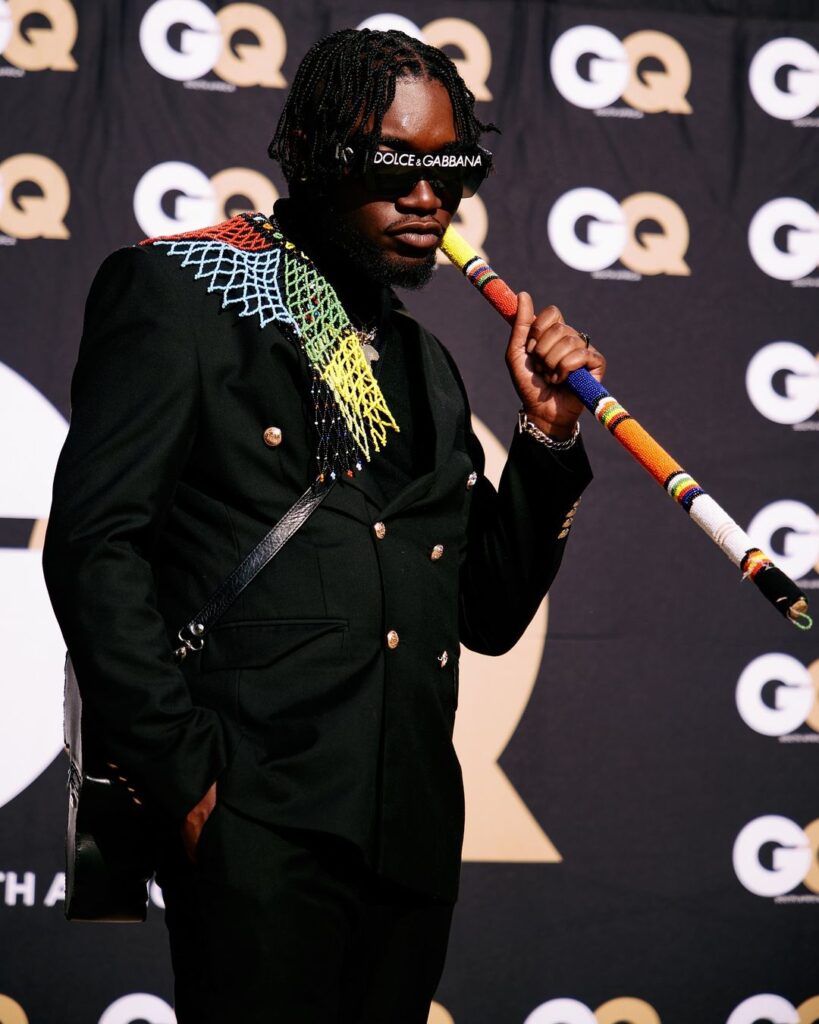
Singer-Songwriter Manu WorldStar’s Journey to Becoming One of Africa’s Sharpest Arrowheads Within the Afro-Fusion Space
Johannesburg-bred singer-songwriter Emmanuel Mumbili Mutendji, popularly known as Manu WorldStar has made a far-reaching mark in the music scene just one album – Molimi (2020) – and several hit singles deep into his career. Breaking ground as a frontier-pusher in the afrobeats movement encroaching upon local territories, there truly is no afrobeats in South Africa without Manu WorldStar.
As far as the birth and growth of his craft is concerned, Manu WorldStar credited the queen to whom he owed his life, his mother, as well as his churchly upbringing. Honing his gift on the whetstone of bi-weekly praise and worship rehearsals, WorldStar came to not only love music at the tender age of seven but to form the habit of consistency.
“My love for music first started when I was about seven years old. I would go with my mom to choir rehearsals on Tuesdays and Saturday mornings. I would sit down and listen to her sing in the choir. That’s when and where I fell in love with melodies. The church helped me nurture this sound because during those weeks I’d listen to real music and real singers there,” he said.

The “Nalingi” hitmaker recently dropped “Big Boys” with the assistance of Tiyani Afrika and Vulgar M Beats. A triumphant ode to Afro-masculinity, the star spoke about the inspiration behind the song.
“It was really fun. This was one of those studio sessions where I wasn’t thinking too much and I just wanted to have fun. My boy Tiyani Afrika had been meaning to get into music for years since he was already a big influencer and model, and he’d been telling me about this aspiration for years leading up to the making of the song.
“Finally, when we both had the time, we hit the studio and made a couple of records, “Big Boys” being one of them. If I were to categorise the song energetically, I would say that it’s a record that celebrates African masculinity and the type of energy African men have. When we step into a room, we have this aura – this big boy energy. When we were making this song, we were looking at imagery of Coming to America, Black Panther, and all stereotypical African men portrayed in media. That’s the kind of masculinity we were going for: that African men are big boys. That’s the essence to this record,” he said.
Listen to “Big Boys”:
With the releases of sensational records such as “Nalingi” and “Choko”, Manu has arguably cemented his status as a trailblazing forerunner in the afrobeats movement in Mzansi. While hip-hop, house, and the then-burgeoning amapiano ruled the radio waves, the singer-songwriter took a shot at the dark by introducing one of the world’s most commercially viable genres to the shores of commercial South African music. His success and the distinction of his artistic voice testify well for him in his proclamation that there’s no afrobeats in SA without Manu WorldStar.
The star shared his feelings about the risk of venturing into afrobeats amid in the industry.
“It was very organic as a process. When I decided to release afrobeats music, I was just trying to see if South Africa would be open to a sound other than what was being pushed at the time. When I released “Nalingi” that’s when everything changed, and from then onward I started to see myself as a leader because I was at the center of a lot of people’s brands shifting from being Westernised to embracing what’s African, especially in South Africa. The way I presented that record? There wasn’t anyone doing that at the time, and I’d like to think I’ve got little children running around here, cause I can hear it in their sounds and every little thing in between.” he said.
Citing his musical influences as Burna Boy, Fally Ipupa, AKA, and Drake, Manu WorldStar has stenciled his musicality with the framework of eclectic artists. As a result, he has evolved into a paradoxical figure that represents an African cosmopolite – an artisan of home-cultured soil with an aggregated matrix of particles from all four corners of the globe.
“Keeping my ear on the ground is one thing I like to do so as to find out what are the sounds out there that are catching fire. As a musician, you don’t have to change your sound, just adapt it slightly if you want to keep up with the times. Change your drum pattern or your melodic line or your top line, but you must keep your eyes on the streets. That’s what I do. I like to push the envelope. I categorise my sound as afro-fusion because I never know what I’m gonna fuse it with. It could be afro-hip hop, or afro-R&B, or afro-piano. The main thing is “afro” and how I am going to portray that,” he said.

With “Nalingi” blowing up and becoming his perpetual bread and “Choko” – his personal favourite – reaching the humbling heights of cult status within his fan base, Manu WorldStar expressed shock when it came to how well the songs have been received, particularly the latter. Manu spoke about delving into other genres such as latin and afro-country music.
“I would like to do latin music and reggaeton. I’d like more to dabble into the island sounds. I also have a thing for country music. I just might make afro-country a thing, so that’s what I might explore next,” he said.


